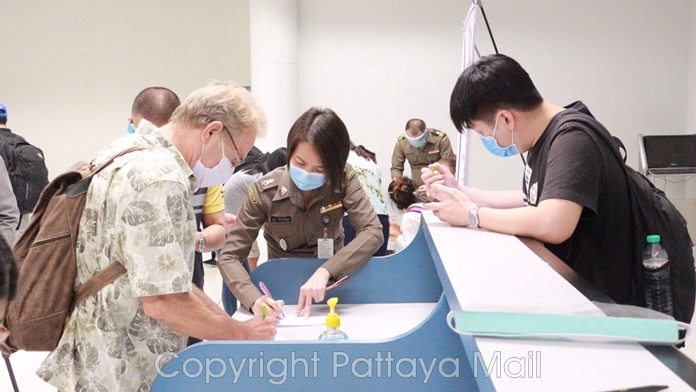
Hopes that the Thai authorities will substantially loosen the screws on foreigners wanting to come to Thailand have hit the dust. A statement by the National Security Council that “international travel may resume” from July 1 had even been interpreted by some to mean that mass tourism and charter flights would be back in the near future.
But a supplementary letter from the Thai Ministry of Foreign Affairs to Thai Chambers of Commerce has clarified that, in the first phase, only holders of Thai work permits (or verified applicants thereof) are included beginning in July. And the process for them will be laborious, including written permission from the Thai embassy where they are residing, medical insurance of $100,000, fit-to-fly certification and – once they arrive in Thailand – compulsory state quarantine for a fortnight at their own expense.
There is no mention in the Ministry’s letter of other categories, such as foreigners with Thai wives and/or family responsibilities and aliens with permanent residence who hold the much-prized red police book. In the other words, unless there are additional measures of liberalization yet to be announced by government sources, both the above groups will have to wait for a second phase. Permanent residents, who normally cannot remain outside Thailand for more than 12 months, have already been informed that they may be absent longer if travel difficulties persist.
Nor is there any suggestion that holders of one year extensions of stay, such as retirees or students, will be allowed to return any time soon. In any case, if compulsory quarantining remains on the agenda and if compulsory medical insurance is part of the deal, then many will simply not want, or be unable, to return. It appears that these groups will have to wait until the Ministry of Foreign Affairs and the Immigration Bureau sort out the revised regulations. Reports on social media that holders of the 5-20 years Elite card visa have been given special permission to return are untrue.
All things considered, it appears that the return of short-term mass tourism is also far down the track. The government is already committed to introducing compulsory travel insurance for them, probably added to the cost of the air ticket, and it is possible (even likely) that tourists on scheduled or charter flights will not be a feature in Thailand for months. The most likely scenario is a pilot scheme for limited numbers, perhaps from countries with a good track record of combatting Covid-19 infections, to be introduced later this year.
Foreigners who believe they can circumvent restrictions by arriving by sea or through a land crossing are also likely to be disappointed. Although borders may eventually reopen for MOU (Memorandum of Understanding) documented workers from Laos, Cambodia and Myanmar, it is improbable that visa runs in all their colorful forms will be returning any time soon. In any case, entry into these countries at the moment is difficult or impossible. For example, the Cambodian authorities require all visitors to have virus-free certification and a $50,000 comprehensive insurance plus compulsory state quarantining in a Phnom Penh facility.
So when the next Thai “high season” will arrive is anyone’s guess. Following the end of the emergency regulations at the end of June, some bars and clubs may reopen. But they are likely to be faced with yet-to-be-announced restrictions on opening hours and demands for comprehensive health and safety features. In any case, the number of customers is likely to be mostly restricted to expats already here and the somewhat elusive domestic tourist sector. To muddle the metaphors, patience is a virtue and wait and see. Maybe Christmas will be early this year.
 |
 |
 |




